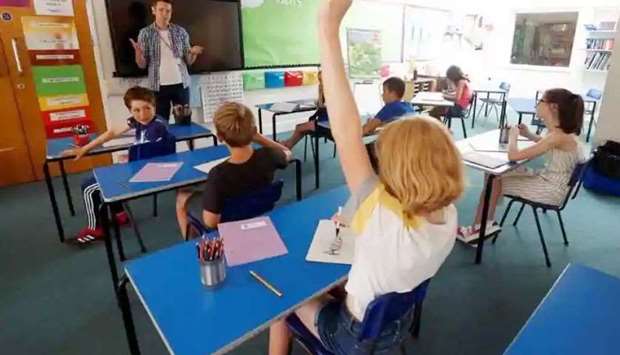Classrooms in England are to be fitted with air quality monitors when state schools and colleges reopen after the summer holidays, in an effort improve ventilation and combat the spread of the coronavirus (Covid-19).
The decision announced by the education secretary, Gavin Williamson, comes after a vociferous campaign by school staff unions for better ventilation, with research suggesting that the coronavirus mainly transmits via airborne particles, making enclosed spaces likely breeding grounds for infection.
Starting in September, the Department for Education (DfE) will spend £25mn to provide 300,000 CO2 (carbon dioxide) monitors to alert staff and students if CO2 levels rise, meaning that fresh air is failing to circulate.
The DfE said the monitors “will enable staff to act quickly where ventilation is poor and provide reassurance that existing ventilation measures are working”.
Williamson said: “Providing all schools with CO2 monitors will help them make sure they have the right balance of measures in place, minimising any potential disruption to education and allowing them to focus on world-class lessons and catch up for the children who need it.”
This week the seven unions representing staff working in schools wrote to Williamson, asking the government to “urgently” provide air-monitoring and ventilation equipment for the start of the new school year.
Geoff Barton, the general secretary of the Association of School and College Leaders, said: “We have repeatedly called for government investment in ventilation systems for schools and colleges to help tackle the risk of coronavirus transmission, and we are therefore pleased that there is finally a plan to do something practical about this issue by providing carbon dioxide monitors.
“In truth, this equipment should have been in place ready for the start of the autumn term, and arguably a lot earlier in the crisis, but it is a case of better late than never.”
Kevin Courtney, the general secretary of the National Education Union, said the government should be ready to support schools to address any problems identified by the new monitors.
“[This] decision is, we hope, a signal that government is serious about the importance of ventilation in relation to Covid-19 and the funding is a clear indication to schools and colleges that they should prioritise fresh air,” he said. “It is a welcome admission from government that some mitigations need to be in place.”
“The educational benefits of good ventilation are very clear. Not only will this make it more likely that young people can continue with on-site learning, but good ventilation will also aid their concentration.”
Kate Green, the shadow education secretary, said: “Identifying poorly ventilated areas is just a first step; the government has still done nothing to actually improve ventilation despite calls from Labour, education professionals and parents.”
“The Conservatives’ chaotic, last-minute approach has created confusion for schools, parents and pupils throughout the pandemic,” she added. “They are still failing to learn from their mistakes and plan ahead, risking further disruption to children’s education.”
Deliveries of monitoring units to special needs schools and alternative provision units will be prioritised, with the DfE saying that all nurseries, schools and colleges are expected to receive at least partial allocations during the autumn term.
That would enable all settings to monitor areas where they believe airflow may be weakest.
The government has also launched a trial of air purifiers in 30 schools in Bradford to assess their use and whether they could reduce the risk of transmission.
Other measures from the start of the school year, which is next week in some parts of England, will include students continuing with twice-weekly Covid-19 testing, starting with two tests to be administered onsite to secondary and college students on or before the start of term.

UK schools Photograph. (Reuters)
